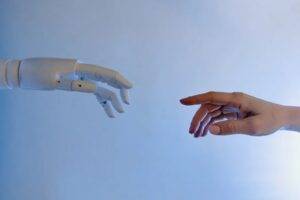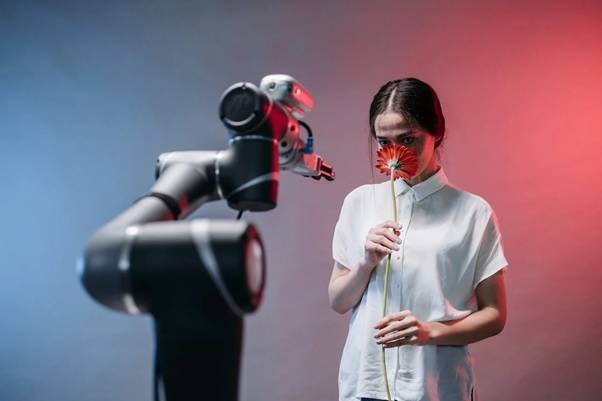Millions of individuals all over the globe struggle with some kind of mental illness, making it a major threat to public health. The capacity to function in everyday life, including working, studying, and maintaining relationships, may be negatively impacted by mental illness. Finding novel approaches to the prevention and treatment of mental health problems is crucial, given their pervasive nature. Preventing, treating, or managing mental health illnesses via the use of artificial intelligence (AI) is a potential area of study in this subject. So, we will discuss some possible ways AI can help people dealing with mental health issues.
AI software therapy
Many individuals are interested in AI-based therapy and discussions because they provide accessible, beneficial, and private assistance. Not a replacement for human interaction, but potentially useful in helping people cope with stress, improve self-control, and broaden their social circle. People dealing with mental health issues may get AI companionship whenever they choose, from anywhere with an internet connection. They’re there whenever, day or night, to talk and provide words of encouragement and mental health assistance. Depending on the person’s situation, a conversation might last anywhere from a few minutes to many hours.
Also, surprisingly perceptive and useful counsel may be provided by digital friends when faced with difficulties. AI dialogues may include time management recommendations, relationship guidance, healthy habit formation, and methods for improving mental health.
AI chatbots
Using AI-powered chatbots to give around-the-clock help to people with mental health disorders is a common and well-received practice. Researchers can teach Chatbots to be empathetic, provide sound advice, and recognize the warning signals of emotional discomfort or suicidal thoughts. This is an important step when communicating with folks who may be reluctant to open up to others and might feel safer using a computer. Chatbots powered by AI may also be used to gather data and patient demographics, which will help policymakers learn more about the mental health of the general public and develop effective preventative measures.
Virtual reality therapy
In order to alleviate symptoms of anxiety or other mental health disorders, virtual reality treatment employs computer-generated simulations to reproduce real-world scenarios. It’s one of the best uses of AI for helping people with mental health problems. This method may be used by mental health practitioners to help their patients gain insight into their conditions and make more informed treatment decisions. By progressively exposing them to simulated situations in a controlled setting, patients may overcome their phobias and anxiety with the aid of virtual reality treatment.
Detecting red flags
Patients already receiving therapy may be monitored using language analysis to flag any deterioration in health. Even though most people don’t visit their doctor or therapist every day, completing a few questions online every day might help the app pick up on red flags before they become serious.
Timely treatments are particularly important in the field of pharmaceutical dependency, but they are also important in many other areas of mental health. Between doctor’s visits, AI technologies may be a huge help by acting as daily checks that can see a downward spiral and intervene before it becomes problematic for both the patient and the doctor.

The development of AI is a work in progress, but we are aware that we are making headway. As we continue to make progress toward a future in which AI will be able to assist us in providing individuals in need of mental healthcare with improved services, undoubtedly new breakthroughs will emerge. The problem of mental health has to be addressed, and AI has the potential to play a significant role in doin






















